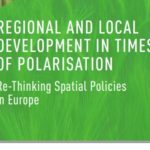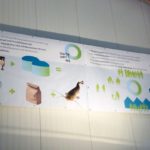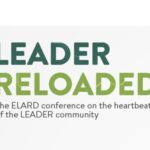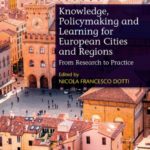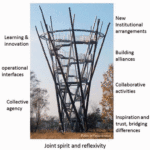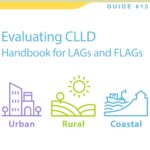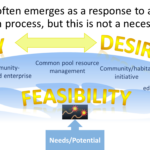The past year has certainly been a particularly difficult one for the strength and cohesion of the European Union. The outcomes of local and national elections in many countries unveiled not only the emergence of new populist and nationalist movements and governments all across the Union, but also a growing disbelief in the European project […]
Publications
A powerful contribution on the future of local development in the EU
A major contribution by Yves Champetier has been published by AEIDL entitled Europe: a major player in the development of territories. In this Yves offers a personal account and an overview of the progress that has been made over the last 40 years and the challenges facing us today. In his article he concludes: A […]
Re-thinking local development policies in times of polarisation
This book, Regional and Local Development in Times of Polarisation, edited by Thilo Lang and Franziska Görmar, contains contributions from 32 academics on “re-thinking spatial policies in Europe”. It is part of the New Geographies of Europe series published by Palgrave. The book takes its starting point by considering a threefold polarisation within the EU: […]
New OECD publications
The Centre for Entrepreneurship, SMEs, Regions and Cities of the OECD has published a new newsletter showcasing a series of new publications. These include: OECD Regions and Cities at a Glance 2018 This report looks at how regions and cities across the OECD are progressing towards stronger economies, higher quality of life for their citizens […]
Local knowledge-based development
In this paper Professor Ilona Pálné Kovács outlines the theoretical frameworks of knowledge-based governance and development, examines the role of local governments as important actors in local development, and examines the scope for place-based development in a centralised governance context. To read the full paper, including abstract and literature, click below.
CLLD/Leader: Past, present and future
In this wide-ranging paper Robert Lukesch goes back to the precursors of Leader and looks at each stage of its evolution, highlighting the complex principles behind this approach (“more than the seven features and usual clichés”) and discussing success factors. He takes us to the current CLLD/Leader period and looks at what lies ahead. He […]
Knowledge, Policymaking and Learning for European Cities and Regions: From Research to Practice
The interaction between research, policy and practice in local development is of major interest and LDnet organised a special session on this theme at the annual conference of the RSA in June 2018 in Lugano. One of the panellists in this debate Dr Nicola Francesco Dotti is the editor of a new book making a […]
Leadership in place-based development
“The role of leadership in place-based development and building institutional arrangements” is a paper by L. G. Horlings, D. Roep and W. Wellbrock published in Local Economy, the journal of the Local Economic Policy Unit. In various case studies across Europe the vital role of rural place leadership in enabling a place-based approach to local […]
CLLD post-2020: Main proposals and changes
The proposals of the European Commission regarding Community-led Local Development (CLLD) and Leader were published before the Summer. In the following note Urszula Budzich-Tabor distils the main proposals and offers a comparison with the 2014-2020 period. However, not everything is 100% settled and, as Jean-Pierre Vercruysse has commented, there are some proposals in the draft […]
Preserving the specific features of CLLD post-2020
In May 2018, the European Commission published its proposals for CLLD/LEADER in the post-2020 period. The overall impression is that these proposals, broadly speaking, amount to a continuation of the approach and rules applying to CLLD/LEADER in the current, 2014-2020 period. But as already noted by Robert Lukesch in his ‘LEADER RELOADED‘ paper, there will […]
A handbook on evaluating CLLD at the local level
FARNET and FAME Support Units have developed a handbook on evaluating Community-Led Local Development (CLLD) at the local level. This handbook is addressed to all Local Action Groups (LAGs) funded from one or several of the four ESI Funds and it provides them with easy-to-use tools and methods. It covers the main steps in evaluating […]
Social innovation and territorial development
In his contribution to the International Seminar Social Innovation in Public Policies in Brasilia, on 7 and 8 March 2018, Robert Lukesch discusses the essence of social innovation at the micro level and highlights the importance of governance (“the very notion of social innovation requires an institutional environment which is at least not punishing deviating […]


